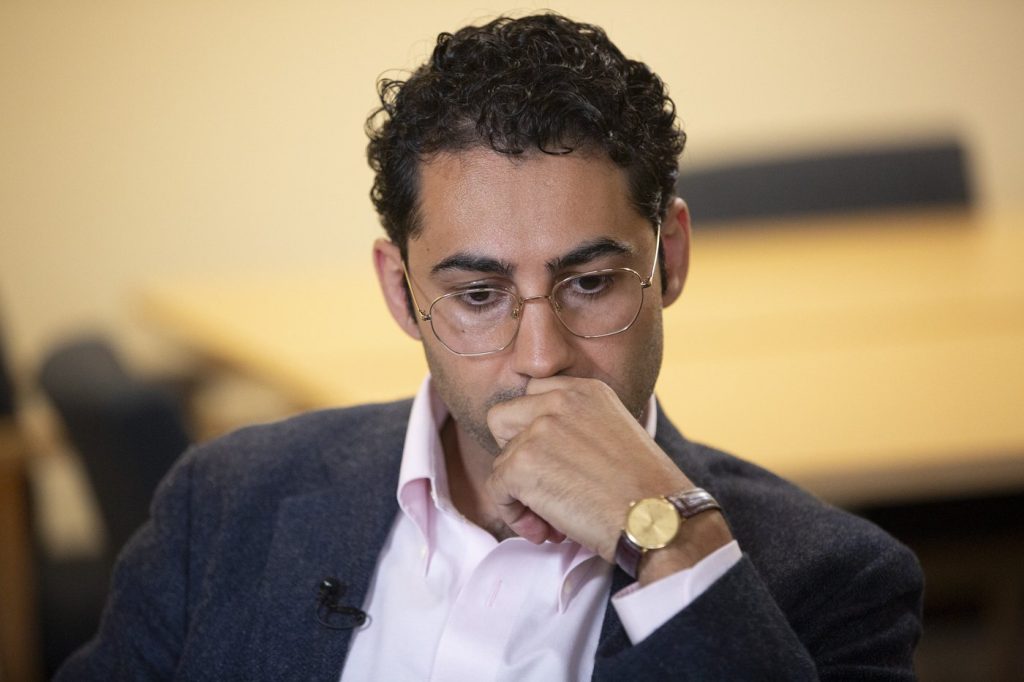MONTPELIER, Vt. (AP) - Mohsen Mahdawi, a 34-year-old Palestinian student, has publicly criticized Columbia University for allegedly undermining democracy through its management of campus protests related to the ongoing Israel-Hamas war. Mahdawi, who was arrested as he was about to finalize his U.S. citizenship, spent 16 days in a Vermont prison before a judge ordered his release on April 30, 2024. His comments to the media followed a significant protest at Columbia, where pro-Palestinian demonstrators clashed with campus security, resulting in at least 80 arrests.
During an interview, Mahdawi described Columbia University not as a "beacon of hope," but rather as an institution that incites violence against its students. He accused the university of participating in the "destruction of the democratic system," alleging that it supports the agendas of the Trump administration while punishing its students for their activism. His assertion was in light of the university’s recent amendments to protest policies made following threats from the Trump administration to revoke federal funding linked to student protests.
Columbia University's acting president, Claire Shipman, responded to the protests by stating that security asked demonstrators to leave the library where they had gathered but that they refused to comply. Consequently, police were called to assist in securing the building and ensuring the safety of the campus community. Shipman labeled the protest actions as "outrageous" and disruptive, particularly with final exams approaching for students.
Mahdawi, who is a legal permanent resident originally from a refugee camp in the Israeli-occupied West Bank, moved to the United States in 2014. At Columbia, he has been an active figure in organizing anti-war protests and co-founding the Palestinian Student Union alongside fellow Palestinian student Mahmoud Khalil, who was also previously arrested. Mahdawi's activism led to the Trump administration's recommendation that he be deported, claiming his activities threaten U.S. foreign policy interests. However, the judge who released him indicated that there was a "substantial claim" that his arrest aimed to suppress free speech.
The events leading to Mahdawi’s arrest occurred on April 14, 2024, at an immigration office in Colchester. After undergoing a written citizenship test and a verbal interview, he was unexpectedly apprehended by armed agents, an experience he described as shocking and filled with conflicting emotions—oscillating between feelings of rights and their absence.
Since the onset of the Trump administration, immigration authorities have detained college students nationwide, especially those associated with protests regarding the Israel-Hamas war. Mahdawi is notable for being among the first detainees to successfully challenge his arrest and regain his freedom. In a parallel situation, a federal appeals court recently ruled in favor of Tufts University student Rumeysa Ozturk, returning her from a Louisiana detention center to New England to review the legality of her detention and whether her rights were violated.
In the aftermath of his release, Mahdawi reached out to other affected students, urging them to remain hopeful and resilient in their beliefs regarding justice. He emphasized the importance of community mobilization and highlighted that the justice system was still functioning, as evidenced by the outcomes of his case and that of Ozturk.
With his release being challenged by the government, Mahdawi now has the freedom to travel beyond Vermont and intends to attend his graduation from Columbia University later this month. He expressed a commitment to this milestone as a powerful statement about the significance of education as a source of hope and resilience against oppression. Mahdawi believes that no external force should be allowed to deprive individuals of their right to education and the pursuit of knowledge.











